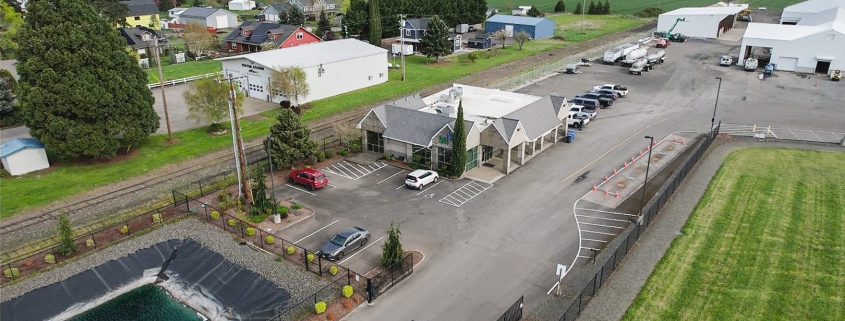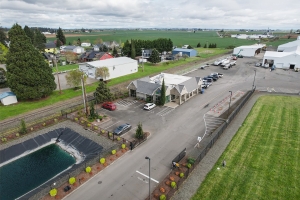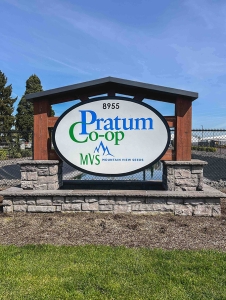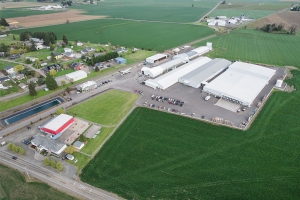Vertical Integration Key to Success at Mountain View Seeds
Born out of a co-op in the heart of the Mid-Willamette Valley, Mountain View Seeds has emerged as a top player in the global grass seed market, providing high-quality turfgrass, forage, and cover crops with a focus on environmental sustainability.
Today, the company contracts with more than 200 growers across the Pacific Northwest and sells anywhere from 60-80 million pounds of seed every year. Species include cool-season grasses like kentucky bluegrass, fescue, ryegrass, bentgrass, Bermuda, wildflowers, legumes, brassicas and much more used in lawns, parks, landscaped areas, golf courses, sports fields, and sod farms around the world.
Being vertically integrated also allows Mountain View Seeds to have a hand in every step of the process — from being involved in developing varieties, seed processing, and shipping. This offers more guidance and quality assurance from start to finish. Tony Ramirez, accounts manager for the company, said this is what gives Mountain View Seeds a strong foundation.
It just makes our turnaround time quicker and more efficient,” Ramirez said. “We’re able to work closely with our growers to ensure quality and performance standards are met. With our highly efficient automated seed blenders, we are able to ship products in a timely manner”.
Rooted in Oregon
Mountain View Seeds is part of Pratum Co-op, established in 1946 by a group of local farmers cultivating premium grass seed east of Salem. In 1998, Troy Kuenzi and Todd Bond started Mountain View Seeds to handle the rising demand for Pratum’s private varieties.
Though the scope of the business is now global, Ramirez said the company remains dedicated to serving Oregon agriculture. Mountain View Seeds is a supporter of several industry groups, including the Oregon Seed Growers League, Tall Fescue Commission, Fine Fescue Commission, and Annual Ryegrass Growers Association. The company also donates to the annual Oregon Ag Fest, as well as local FFA chapters.
As members of the Oregon Seed Association, Ramirez said the company benefits by being able to network and exchange insights that strengthens the entire seed industry.
“We’re all competitors in the room, but we have common goals,” he said. “It’s a really good place to gain knowledge of what’s happening, especially in a diverse industry such as ours. There are so many different things that go on.”
Fighting for Grass
One of the biggest challenges facing the seed industry, Ramirez said, is fighting against the perception that grass lawns are bad for the environment. In addition to grass’ ability to sequester carbon, improve air quality, and prevent erosion, Mountain View Seeds is constantly working to develop more sustainable varieties that use less water, fertilizer, and pesticides while maintaining quality.
To do this, Ramirez said the company utilizes the Alliance for Low Input Sustainable Turf (ALIST), multiple universities, and other research partners.
“The biggest thing is we do a lot of research and trials to figure out which varieties can have reduced inputs, more heat tolerance, and decreased water use,” Ramirez said. “A lot of it ties into the environment, but it’s also about cost savings in a way where you have fewer inputs, and you’re also doing better by the Earth.”







